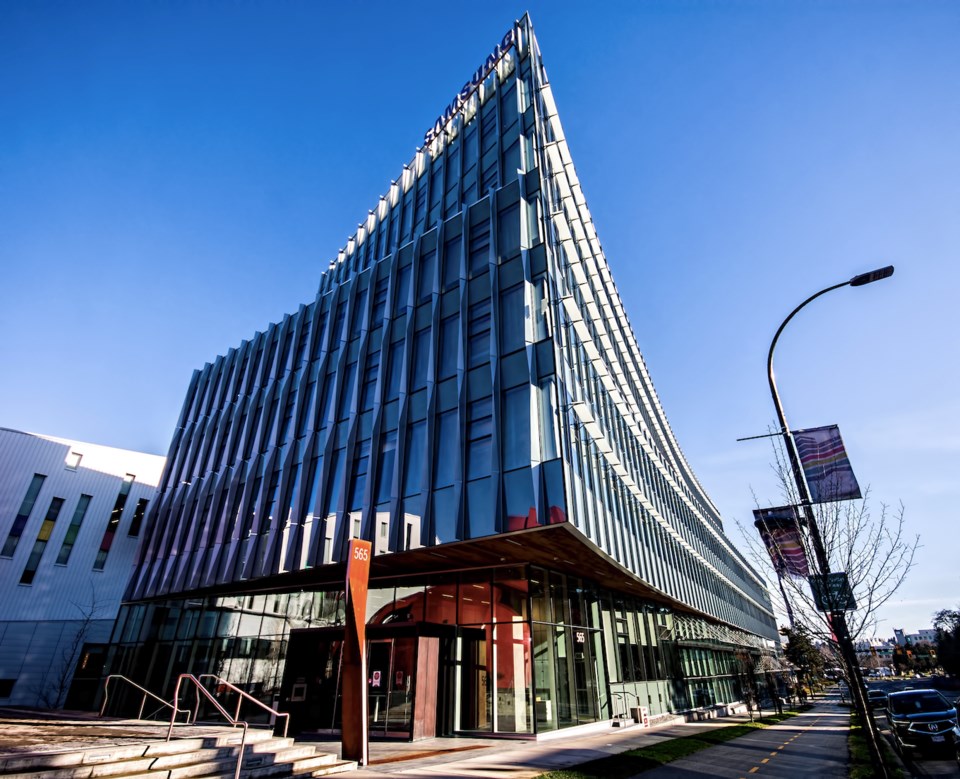With $25 million in federal backing secured in February, Precision Nanosystems Inc. (PNI) has ramped up plans to open a facility capable of producing 240 million vaccine doses annually by 2023.
Last fall, Ottawa earmarked funds for the company to pursue its own COVID-19 vaccine, which is expected to enter phase 1 of clinical trials this coming summer.
But it has been a challenge finding the right location, despite more than one million square feet of office space sitting vacant across Metro Vancouver.
“There is a crunch of life science space in the Metro Vancouver area, absolutely. And for companies like ours that are growing as fast as we are, it’s a challenge that we need to deal with,” said James Taylor, PNI’s CEO.
PNI’s real estate challenge is all-too-common for B.C. life sciences companies, according to CBRE Group Inc. executive vice-president Kevin Nelson.
After the credit crisis put a squeeze on venture capital available to local biotech firms more than a decade ago, much of the region’s lab space dedicated to those companies was converted into conventional office space.
“Venture capital money has come back to the biotech sector in a very big way over the last 18 months and more particularly in the last year,” said Nelson, a member of the real estate services firm’s High Technology Facilities Group.
But the lab space hasn’t returned as swiftly for B.C.’s life sciences sector, and conventional office space cannot be used by the industry without significant retrofits.
“Demands biotech puts on a building is like an office-user on steroids,” said Nelson. “It requires additional air exchange and mechanical systems to support that. It generally requires a little bit more power than a classic office-user. It requires drainage in places that office-users never classically would need.”
He said these factors have created a 50 per cent premium on rents for biotech spaces in Vancouver amid surging demand.
A June 2020 government report – prepared prior to the pandemic – reveals B.C.’s life sciences sector recorded nearly $5.4 billion in revenue in 2018.
That’s up 5.6 per cent from 2017.
Industry employment grew 5.6 per cent between 2017 and 2018, while the number of businesses grew 4.7 per cent during that same period.
But Nelson and others in the industry fear that life sciences could lose local companies if there’s not enough dedicated space to meet their needs.
“I’m working with a client in Vancouver who’s going to do what they can do in Vancouver, and then going to do the rest of Toronto,” he said.
Wendy Hurlburt, CEO and president of the LifeSciences BC industry association, said the province faces “critical shortages” of lab space amid the recent biotech boom that’s delivered blockbuster initial public offerings for Zymeworks Inc. and AbCellera Biologics Inc.
“We have companies – very early-stage companies – that cannot find any space and are looking at leaving British Columbia,” she said. “It’s not a new problem, but it has absolutely been exacerbated by the exponential growth that has been happening in the life sciences sector.”
Gordon McCauley, CEO of adMare BioInnovations Inc., a non-profit organization in Vancouver that helps commercialize academic research, said large companies can bear the costs of retrofitting space if need be.
“It’s the emerging companies that need somewhere to prove their science and prove the commercial value of what they’re doing. And they obviously can’t afford to either retrofit the space on their own or to convince landlords that they alone would be worth retrofitting for,” said McCauley, whose organization provides space to those early-stage life sciences firms.
“Whereas, if we were able to pull together the broader demand and ecosystem and build one larger facility, that can help solve the problem.”
Such an endeavour has become a reality in Montreal, where adMare embarked on a 50,000-square-foot expansion plan for its Quebec facility back in 2019.
“It’s already 80 per cent full,” McCauley said of the $50 million project that is backed by public funds.



